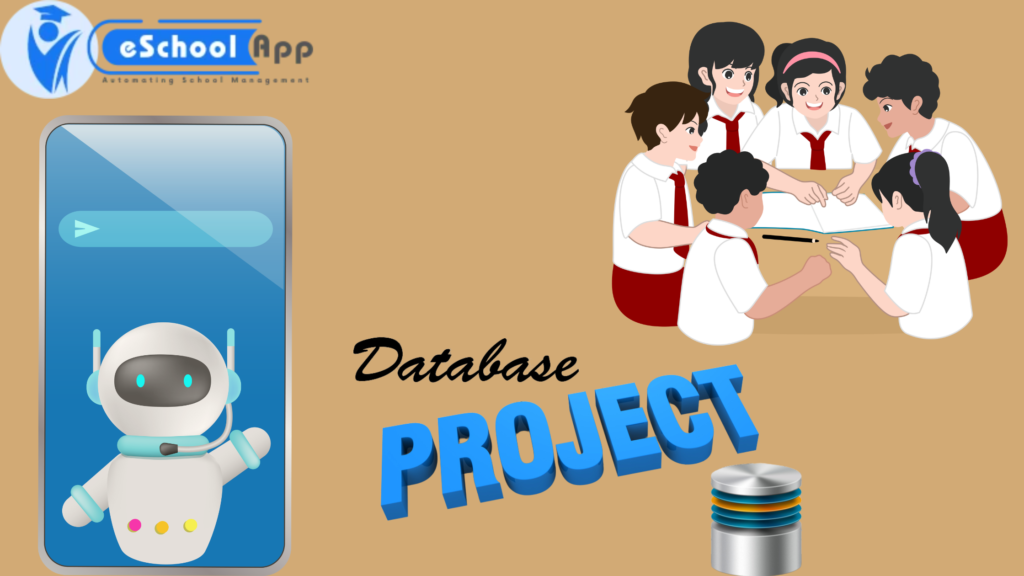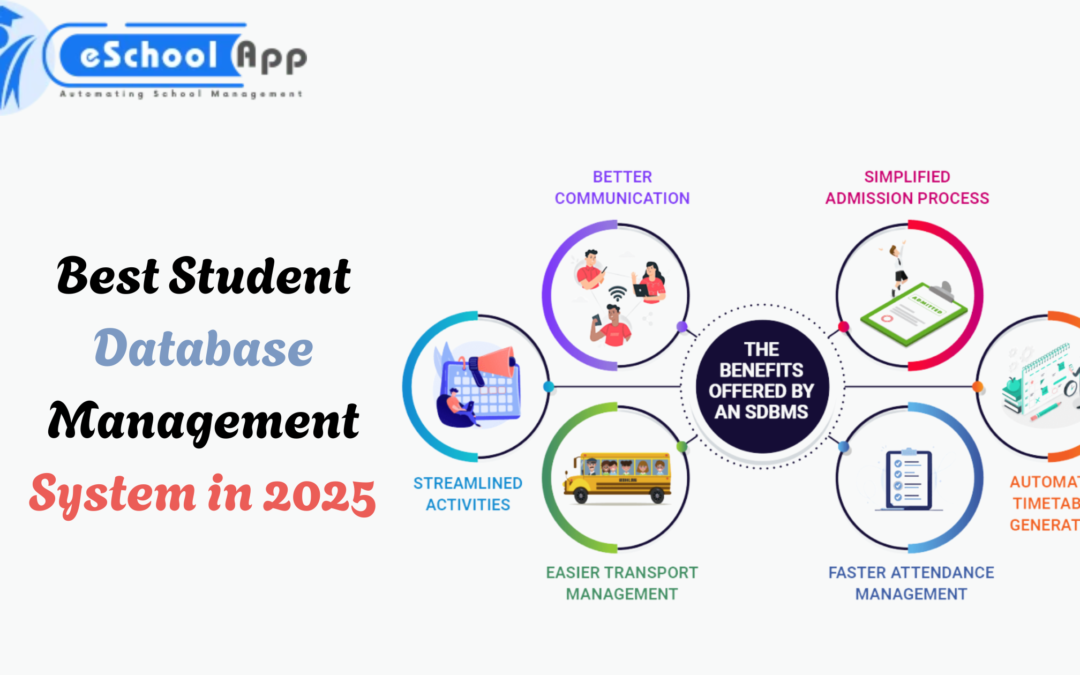By 2025, the schools will be smarter. Teachers, students, and parents are all helped by technology. A Student Database Management System is an important tool. What is it? Why is it important for schools? This is very easy to understand.
Author: Sapna K
What is a Student Database Management System?
A Student Database Management System can be a computer program or an online platform. It allows schools to keep all their student data in a safe location. This data includes:
- Names of students
- Class and Roll Number
- Attendance records
- Report cards and marks
- Payments and fees
- Parent contact details
The software is similar to a digital filing cabinet. All information is stored and easily accessible.
Why is it Important in 2025?
Many schools will use computers and the internet in 2025. Teachers no longer want to maintain files and papers. A student database management system can make work easier and faster. This also saves you time.
If a teacher, for example, wants to check the attendance or grades of a student, he can do so with just one click. There is no need to look through books or files.
What Can eSchoolApp’s Student Database System Do?
eSchoolApp is one of the most advanced student database management system by 2025. What it can do
Save student profiles. Record attendance, upload exam results share report cards with your parents. Keep records of fees. Send notifications to parents. Manage student transfers. Create student ID cards.
This tool makes it easy for parents, teachers, and school administrators to work together.
Benefits of Student Database Management System
In simple terms, let’s examine the advantages of database management system
1. Savings time
No need for teachers and staff to write anything on paper. All information is saved and typed quickly.
2. Easy to Use
The software is easy to use for anyone, even if they are not an expert. It’s just like using a mobile application.
3. Safe and Secure
Data is stored in a secure online system. There is no chance of losing important documents.
4. Quick Reports
You can create charts and reports with just one click. There is no need to do extra work.
5. Real-time updates
Parents can receive live updates on attendance, grades, and fees.
Real-Life Example:
Teachers used to keep student information in books before 2025. Now, thanks to eSchoolApp’s student database portal, they can do it all online.
Maya, the teacher, wants to know what Rohan scored. She searches for Rohan, opens the app, and gets his results in 2 seconds. It’s simple and quick!
What is a Student Database Portal?
A student database portal works like a website or an app that stores and manages all the students’ information. Teachers login with their ID. Parents can log in to check on their children.
Even on holidays or at night, it works.
Types of Database Management System
There are several types of database management system. Here are a few to learn about:
1. Centralized Database
All student information is stored in one location.
2. Distributed Database
The data is stored in different places, but they are all connected.
3. Cloud Database
Google Drive is a good example of storing data online. You can access the data from anywhere.
4. Relational Database
Tables are used to store data. Data can be easily connected.
Most schools will use cloud databases in 2025 because they’re fast, safe, and easy to use.
Database Management System Projects for Students

Students who are interested in computers can do small database management system projects for students. These projects show how databases function.
Simple project ideas
- Attendance system for students
- Marks management system
- Online payment system
- Library Book Database
- Student Transport Record System
These projects will help students understand how databases are used in the classroom.
Disadvantages of Database Management System
The disadvantages of database management system have some drawbacks as well, even though they are useful. Here are some of them.
1. Computers and the Internet are essential
For the system to work, schools must have a good internet connection and devices.
2. Training Required
Teachers and staff should learn to use the software.
3. Cost
Software is not always free. Schools must pay.
Even with these minor problems, there are still many benefits. It is a wise choice for 2025.
How eSchoolApp Solves These Problems
eSchoolApp was designed for Indian schools. It’s easy to use, inexpensive, and it works on mobile devices. It provides training for school staff. In some cases, it can also be used offline and will update when the internet is restored.
Why Should Schools Choose eSchoolApp?
Why schools in India use eSchoolApp
- Easy-to-use interface for children
- The data is 100% secure
- Fast Support Team
- Compatible with iPhone and Android
- Easy report generation
- Access to your child’s account from anywhere
- Small and large schools can both afford affordable pricing
eSchoolApp is a smart way to manage student records, no matter if your school is large or small in size, or if it’s located in a town or a city.
Future of Student Database Systems in India
In the future, every school needs a good student database management system. Paper files are going away. Digital records will become the norm.
eSchoolApp is a must-have tool for those who are taking more online exams, classes, and digital learning.
Final Thoughts
Managing student data will be easy in 2025. With the right tool, it’s easy. Student database management systems, such as eSchoolApp, make life easier for parents, teachers, and school staff.
It’s fast, safe, and intelligent.
Choose eSchoolApp to make your school more efficient, save time, and reduce paper usage.
FAQs – Student Database Management System
Q1. What is a student database management system, and how does it help schools?
Ans: Software that allows schools to store and manage data about students, such as attendance, grades, and fees, in one location is called a student database management system.
Q2. Can small schools use a student database portal like eSchoolApp?
Ans: Small schools can use eSchoolApp to access the student database. It’s simple, affordable, and suitable for all school sizes.
Q3. What are the advantages of a student database management system?
Ans: Teachers and parents can access the data easily and quickly. It reduces paperwork and improves accuracy.
Q4. What types of database management systems are used in schools?
Ans: Most schools use relational databases, cloud-based database systems, and centralized databases to store student information securely.
Q5. Are there any disadvantages to using a database management system in schools?
Ans: Modern schools can benefit from the internet, but it is not free. It requires training and may cost money.

